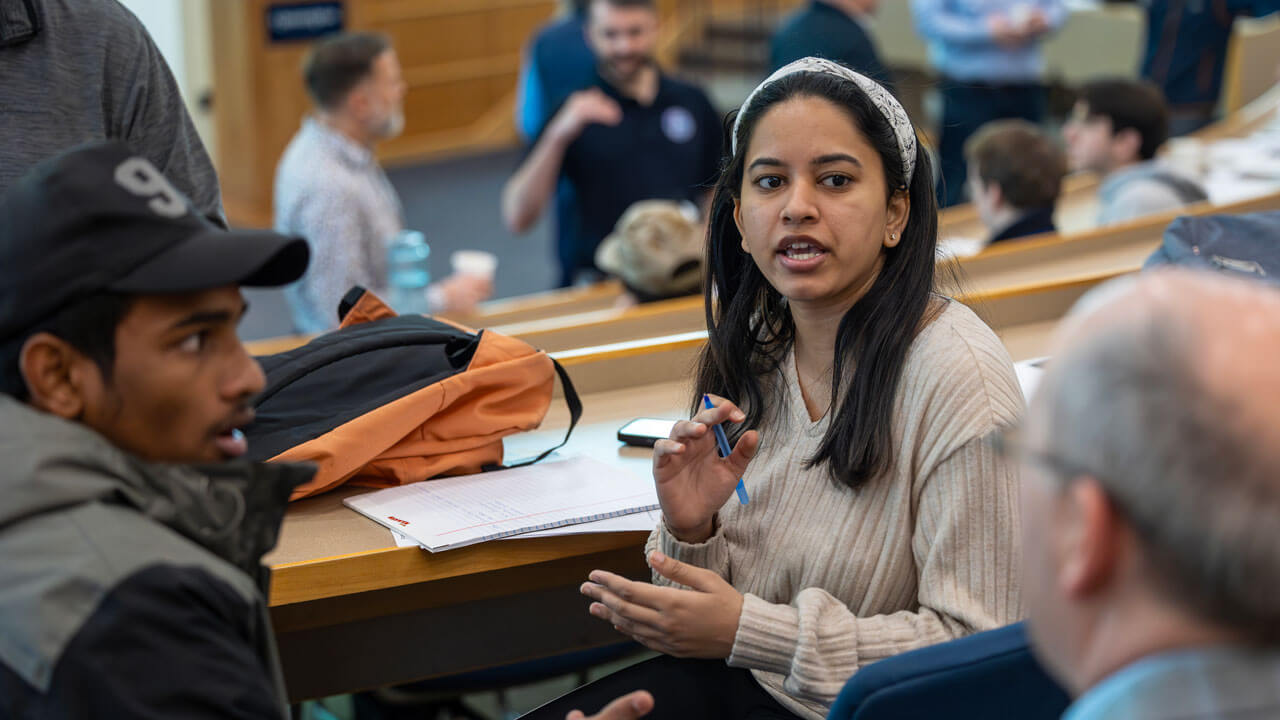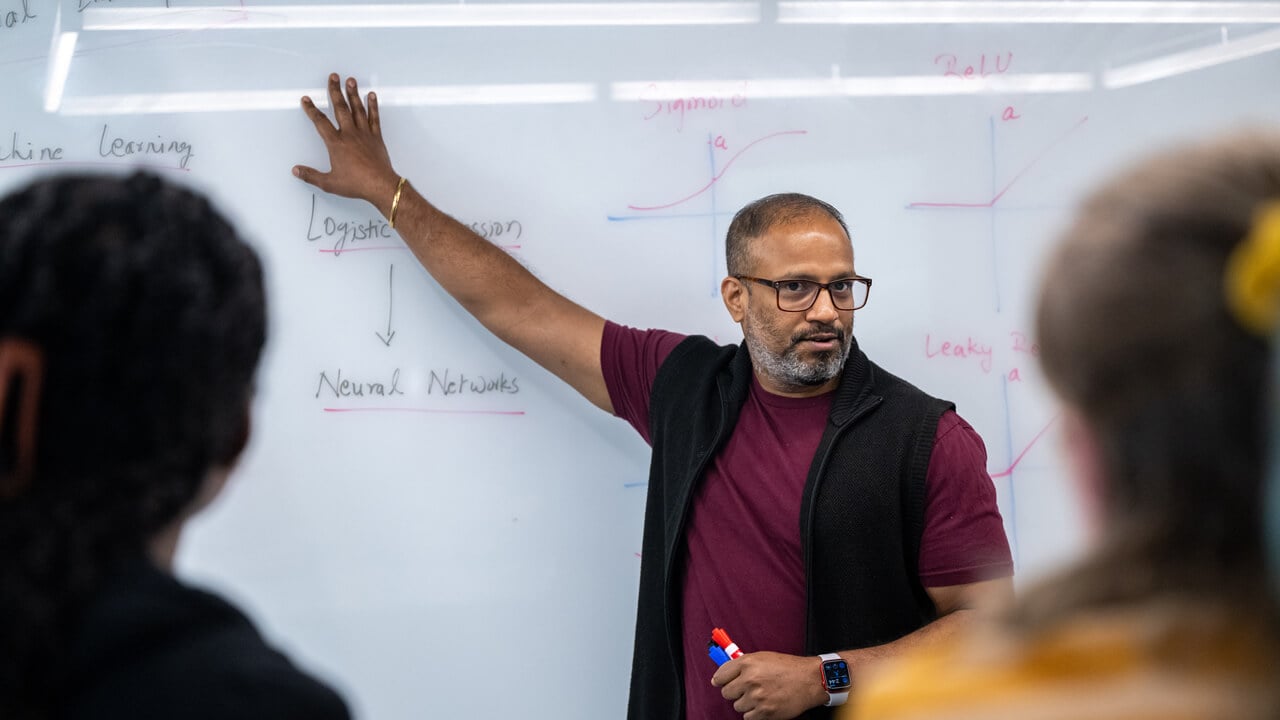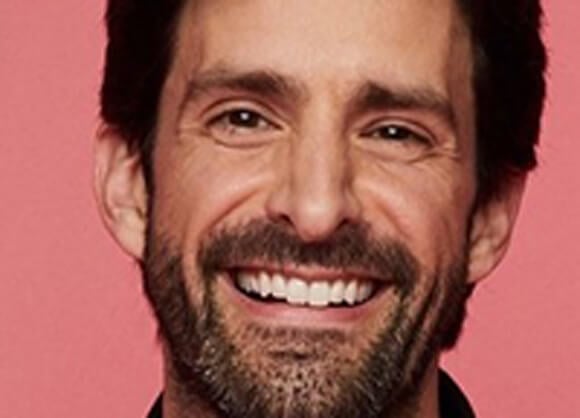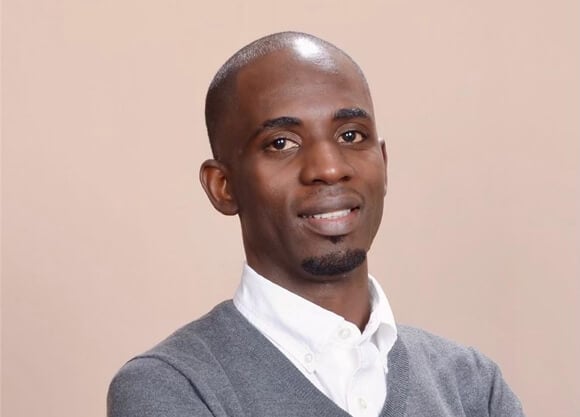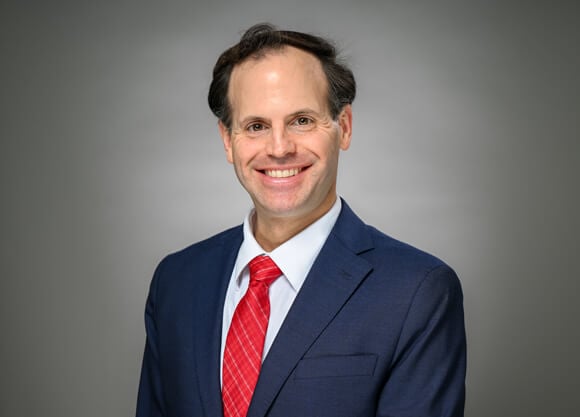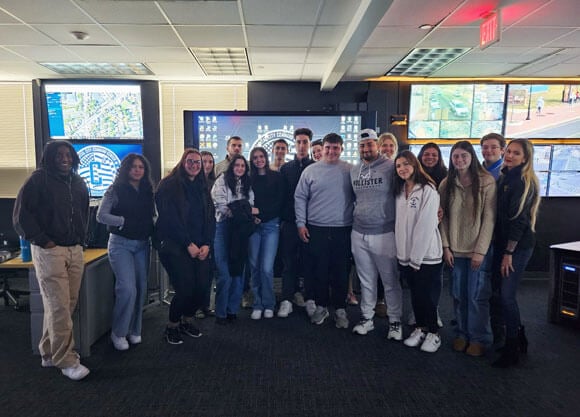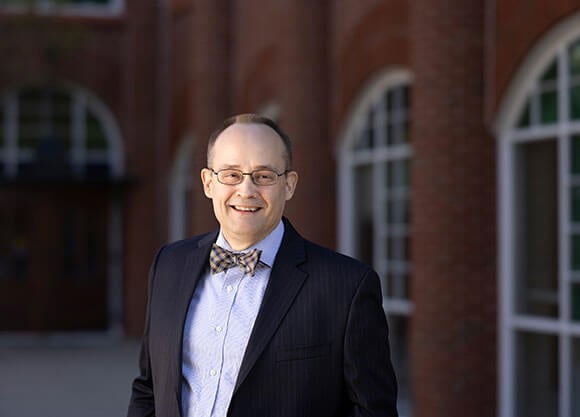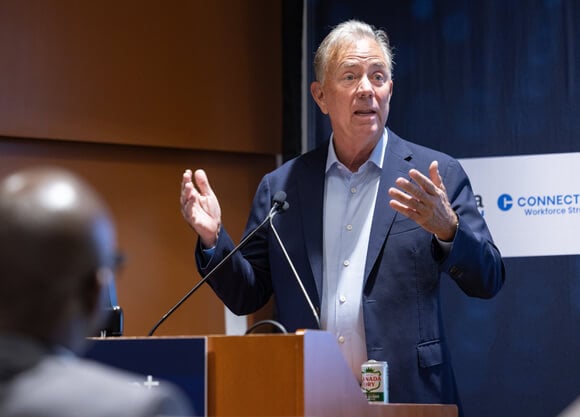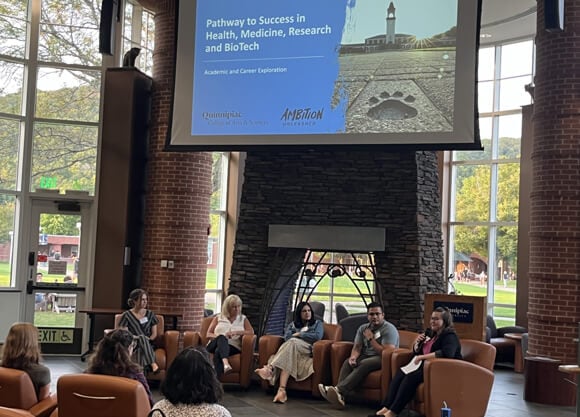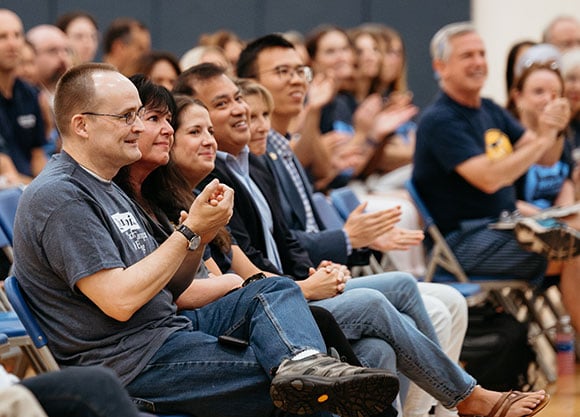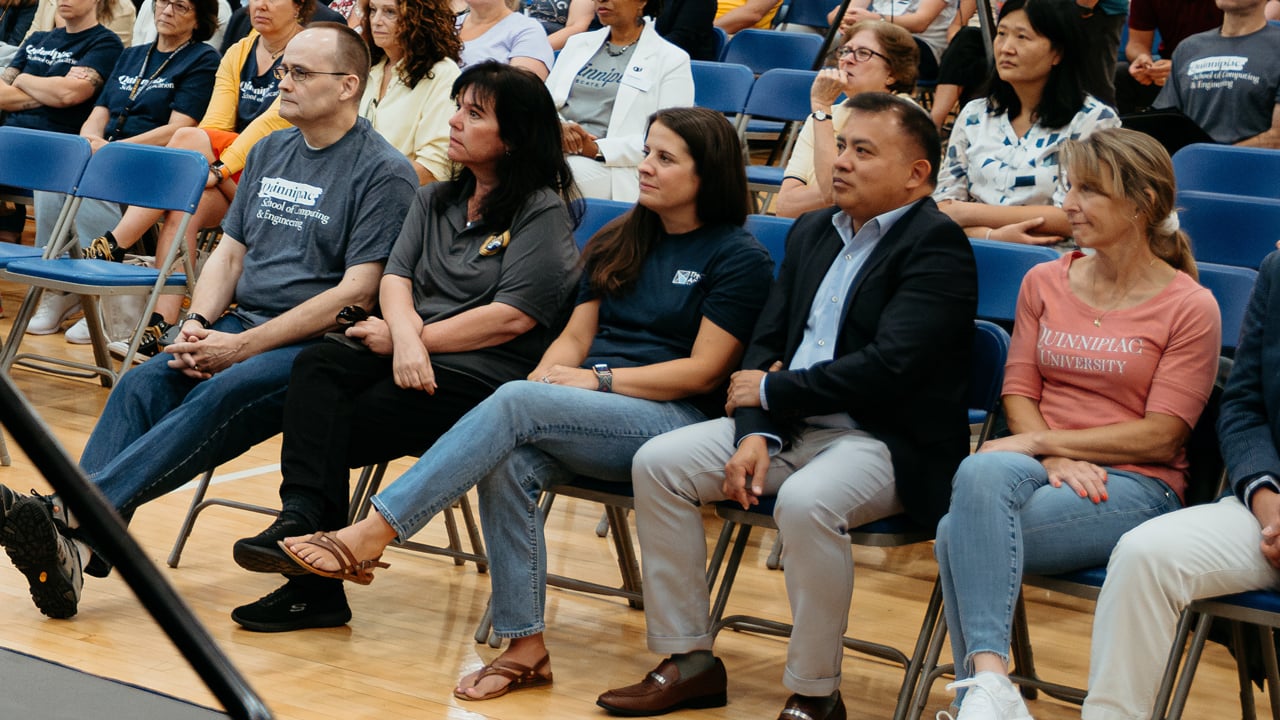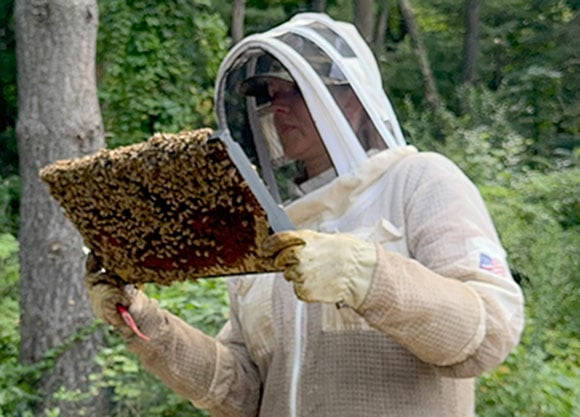
The multi-hour tabletop exercise, which awarded prizes to teams best meeting the challenge, was developed for Quinnipiac students by Hartford HealthCare with an information security partner, Presidio.
Chetan Jaiswal, associate professor of computer science, said the realistic scenario presented the students with a meaningful experiential learning opportunity that will serve them in their future careers.
“The students get to experience a real-world scenario and how it will actually play out, so when they actually go out and start working with an organization, they have this experience under their belt and will know how to react,” said Jaiswal.
Based on varying academic disciplines, students were assigned teams by the competition organizers. The students decided among themselves who would take on team roles of chief executive officer, chief financial officer, chief technology officer, chief information security officer, chief marketing/communications officer and general council/chief legal officer.
“We have created the teams in such a way that each member represents a different realm of an organization, and they are going to give their best, because they are representing their major,” said Jaiswal.
Hartford HealthCare’s Kevin Hamel, vice president of IT operations and technology platforms and chief information security officer, came up with the idea to develop the Quinnipiac and Hartford HealthCare Ransomware Cybercase Competition.
“I think we have a really strong partnership that we’re grateful for, and I’ve always felt strongly about giving back to the students,” said Hamel. “These are the future leaders that are going to be out there facing these challenges at some point in their lives.”
Hamel said ransomware is typically viewed as an IT issue, but it’s so much more than that, as it impacts every aspect of day-to-day business.
“A ransomware event cripples a company entirely,” Hamel said. “The genesis of my idea was to give the students from Quinnipiac’s different schools a sense of that. And it’s great that Quinnipiac jumped at the opportunity to help me get my idea off the ground.”
“It’s a great program” said Fred Scholl, director of Quinnipiac’s cybersecurity master's program. “Incident response is one of the most important parts of cybersecurity because everybody gets attacked, sooner or later. And the question is, are you prepared to respond? Do you know how to do it? That’s what students are learning here, and I think they’re going to take it away to their classes and in their careers. It’s a unique opportunity.”
John Bau, director of career development in the School of Computing and Engineering, worked with Hamel to coordinate the program with the university. Bau said Hamel has made a pivotal contribution to help prepare students for their careers.
“When we look at how technical professionals are going to work in the world, they’re interfacing with everybody, especially in a healthcare setting,” said Bau.
The competition was held February 24 in the Mount Carmel Auditorium, where Hartford HealthCare and Presidio executives were among 18 professional exercise participants.
In addition to representing the worlds of information security and healthcare, other participants were representatives of the FBI, U.S. Homeland Security, Quinnipiac alumni, and School of Computing and Engineering faculty. During the competition, the professionals were available to consult with students as mentors and advisers.
In this Article
Stay in the Loop
Quinnipiac Today is your source for what's happening throughout #BobcatNation. Sign up for our weekly email newsletter to be among the first to know about news, events and members of our Bobcat family who are making a positive difference in our world.
Sign Up Now